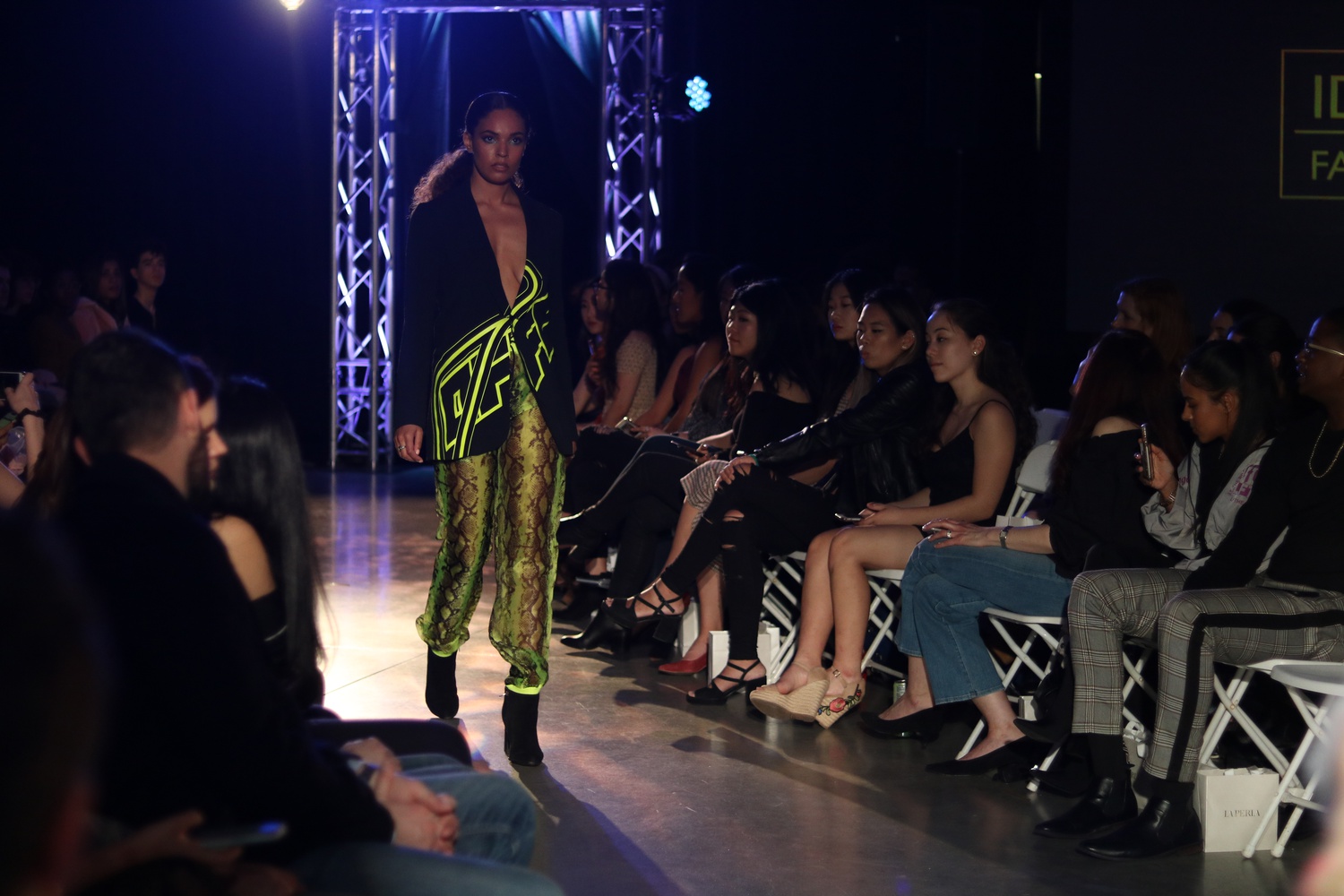
News
Pro-Palestine Encampment Represents First Major Test for Harvard President Alan Garber

News
Israeli PM Benjamin Netanyahu Condemns Antisemitism at U.S. Colleges Amid Encampment at Harvard

News
‘A Joke’: Nikole Hannah-Jones Says Harvard Should Spend More on Legacy of Slavery Initiative

News
Massachusetts ACLU Demands Harvard Reinstate PSC in Letter

News
LIVE UPDATES: Pro-Palestine Protesters Begin Encampment in Harvard Yard
‘Identities’ Takes the Runway

UPDATED: August 12, 2020, 11:33 p.m.
Northwest Labs was transformed into a runway for the 2019 Identities fashion show on March 31. After many weeks of work, the models were prepared, the production was ready, and jackets, gowns, jump suits, lingerie, wedding dresses, and more from student designers and famous luxury designers alike waited backstage.
The show opened with a short interview with Jack Gaffaney, Vice President of DIOR Men’s North America.
“The specific reason I’m in this business — and what I hope for all of you — is that you have a passion for people and you have a passion for what the confidence and excitement of dressing well… can provide other people or provide yourself,” Gaffaney said.
His advice to students aspiring to enter the fashion industry: work in retail. “Being in a store, working with people, working with clients, working with the product in a hands-on way, is really a foundation of what will kind of give you an understanding of the industry, understanding of the client, and understanding of yourself and your passion,” Gaffaney said.
Next, model Coco Rocha took the stage to receive the annual Identities Leadership in the Arts Award. In her speech, Rocha spoke of the difficulties young models face.
“Up until recently, New York, the capital of fashion in America, had very little protection for those underage models,” she explained. “For example, you could work an underage model — she didn’t have to have any protection, she didn’t have to be paid or fed — you could work her 24/7, it didn’t matter. There were no laws.”
Rocha has lobbied congresspeople to change the laws and spoken out about predatory individuals in positions of power within the industry, but she said that the efforts of her and other models have been met with resistance.
“I realized… being a whistleblower would not be enough to enact the kind of change that was necessary,” she said. “I realized I was going to have to change my own corner of the industry.”
Rocha’s work to protect and educate young models led her to establish her own agency, Nomad Management, and, later, the Coco Rocha Model Camp.
“A few days ago, I got to bring a little sample of the Coco Rocha Model Camp here to Harvard,” she said, then added, “Does that make me like, a professor of Harvard?”
“Do I get a plaque for that?” she added. “Like, a staff sweatshirt or something?”
Before the show, Rocha came to Harvard to lead a coaching session for the Identities models, teaching them how to pose and walk the runway. The evening offered the models a chance to put these skills to action.
“I loved the fact that they had different people represented,” audience member Toochi A. Uradu ’22 said after the show. “It felt like it really encompassed what ‘identities’ meant in terms of representation.”
Uradu said her main takeaway from watching the show was to make more daring fashion choices. “I love dressing up and stuff,” she said, “so [I] definitely would love some of these outfits if it were possible, and to just explore other fashion outside of my comfort zone.”
Identities model Hakeem O. I. Angulu ’20 said he thought the show delivered an important message. “I want the audience to understand how serious of an art form fashion is — and also modeling, how serious an art form modeling is — and to realize that even though it is serious, it is incredibly accessible,” he said.
Angulu has modeled previously for Identities and had some background in modeling prior to that, but he emphasized that many join Identities with no experience.
“Many people who modeled today had never modeled before, so this was a great first introduction for them into modeling, and also for the designers to get their pieces shown to a wide audience,” he said.
Grey O. Johnson ’22, for example, was completely new to modeling.
When asked how they got into the show, Johnson said, “It was a little bit on a whim.”
“I was thinking about it, toying around with the idea, and then I just found some heels and walked over to the audition,” they added. “Everyone seemed really cool so I was like, okay, I’m actually going to do it.”
When asked their main takeaway from modeling in the show, Johnson’s response was immediate.
“That I’m a bad bitch,” they said. “On the record.”
Want to keep up with breaking news? Subscribe to our email newsletter.
